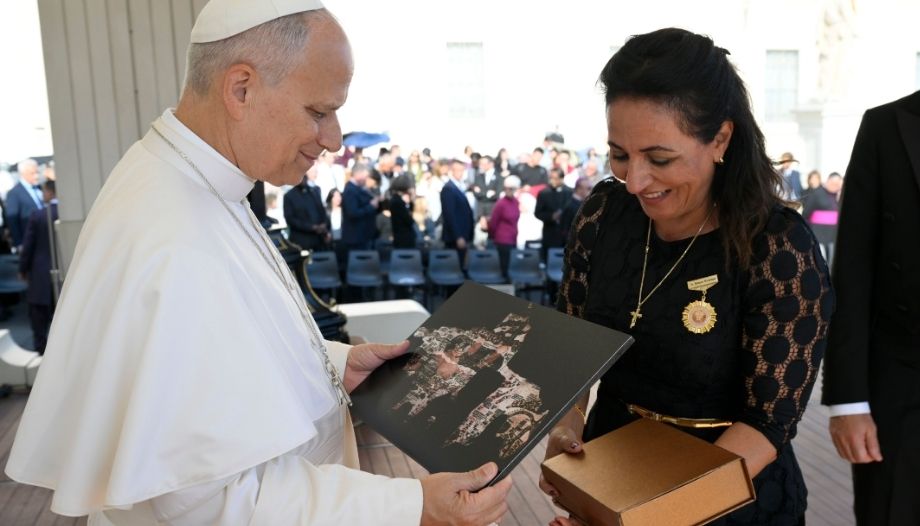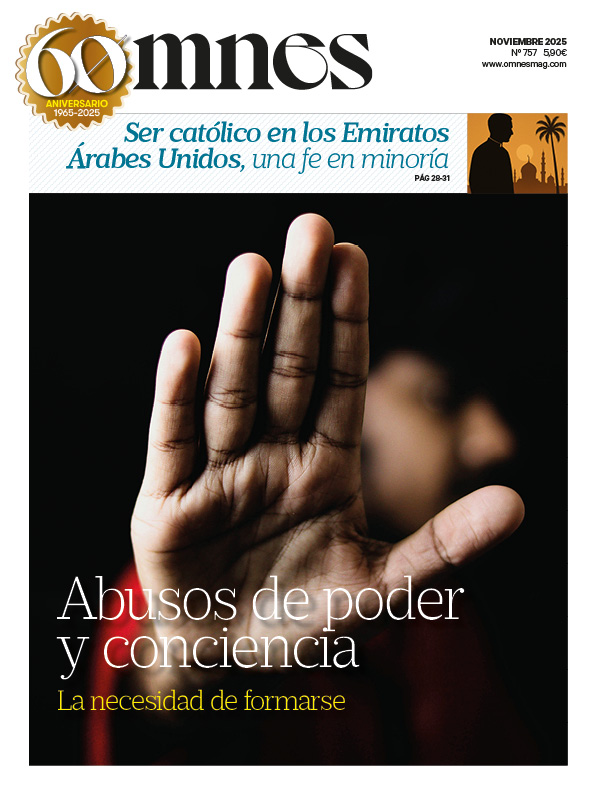- Cindy Wooden, Vatican City, CNS
Pope Leo XIV reminded educators of what St. Augustine had said: “Love of God is the first commandment; love of neighbor is the first practice”. And he stressed that teaching “is a great act of love”.
Education is “a path that teachers and students walk together,” Pope Leo added at this World Jubilee of Education event. A Meeting which culminates on November 1, the Feast of All Saints, with the proclamation of St. John Henry Newman as a Doctor of the Church.
The Pontiff affirmed that the human connection of love and care between teacher and student is a fundamental part of the educational process. And that it takes on even greater importance at a time when so many students experience fragility.
St. John Henry Newman, co-patron of Education with St. Thomas Aquinas
A banner with the portrait of St. John Henry Newman, whom the Pope recently named co-patron of the Church of Jesus Christ. Education, hung from the central balcony of St. Peter's Basilica. Many of those in the square planned to return this November 1 to attend Mass with the Pope and witness the proclamation of St. Newman as a “Doctor of the Church”.
St. Augustine: “Do not look outward, turn to yourselves”.”
Educators, “who are often tired and overburdened with bureaucratic tasks, run the real risk of forgetting what St. John Henry Newman summed up in the expression ‘Cor ad cor loquitur’ («the heart speaks to the heart»). And what St. Augustine said: ‘Do not look outward, turn to yourselves, for the truth dwells within you,’” the Vicar of Christ told them.
Pope Leo XIV, who had been a teacher in the Augustinian school, told educators that “today, in our educational contexts, it is worrying to see the growing symptoms of a generalized interior fragility, in all ages”.
“We cannot close our eyes to these silent cries for help,” he said. “On the contrary, we must strive to identify their underlying causes.”.
The Pope warned that “artificial intelligence, in particular, with its technical, cold and standardized knowledge, can further isolate students who are already isolated. Giving them the illusion that they do not need others or, worse, the feeling that they are not worthy of them.”.
The educational process, a human commitment
But teaching “is a human endeavor,” the Pope said. «And the very joy of the educational process is a fully human commitment, a “flame to fuse our souls and out of many make one,” wrote St. Augustine.
Having a nice classroom, a full library and the latest technology does not guarantee that teaching and learning will occur, he said.
“Truth is not spread through sounds, walls and corridors,” the Pope said, “but in the profound encounter between people, without which any educational initiative is doomed to failure.”.
Pope's questions to each one
As a church and as teachers, he said, “each of us should ask ourselves what commitment we are making to address the most urgent needs. What efforts are we making to build bridges of dialogue and peace, including within teaching communities.”.
“The skills we are developing to overcome preconceived ideas or narrow views. What openness we are showing in the co-learning processes. And the efforts we are making to address and respond to the needs of the most fragile, poor and excluded.”.
“Sharing knowledge is not enough to teach: love is needed,» Pope Leo stressed.
231,000 Catholic educational institutions in the world
According to the Dicastery for Culture and Education, the Catholic Church administers the largest network of schools and universities in the world. There are more than 231,000 Catholic educational institutions in 171 countries. Nearly 72 million students attend a Catholic school or university.
On the same day, Pope Leo met with members of the Organization of Catholic Universities of Latin America and the Caribbean. He told them: “The objective of Catholic higher education is none other than to seek the integral development of the human person. Forming minds with a critical sense, believing hearts and citizens committed to the common good”.
Creating spaces of encounter between faith and culture
In addition to serving the societies of which they are a part, he said, Catholic universities must create “spaces of encounter between faith and culture to proclaim the Gospel within the university environment.”.
At the end, Leo XIV invited them to make the Augustinian values to which he had referred in his speech (interiority, unity, love and joy), the “cardinal points of your mission to your students. Recalling the words of Jesus: ‘I tell you the truth, whenever you did it to the least of these my brethren, you did it to me’ (Mt 25:40). Brothers and sisters, I thank you for the valuable work you do! I bless you from the bottom of my heart and pray for you”.








